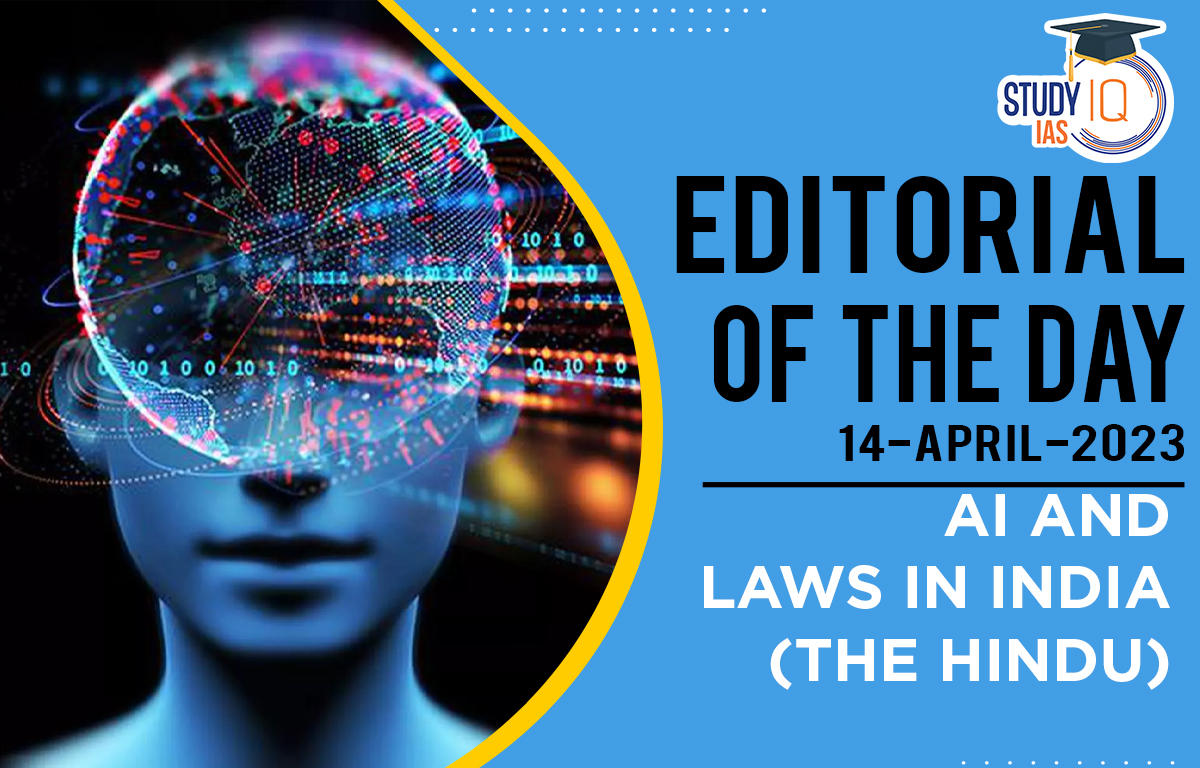Table of Contents
AI and Laws In India Background
- Artificial intelligence (AI) was founded as an academic discipline in 1956.
- 21st Century: In the first decades, highly mathematical statistical machine learning dominated the field, and this technique has proved highly successful, helping to solve many challenging problems throughout industry and academics.
- AI Ross: It has been developed by IBM and adopted by many law firms worldwide, particularly in the USA and is primarily used to vet legal contracts, conduct legal research, and briefly summarise case laws etc.
- AI can act as a catalyst in lessening the burden of the judiciary, especially in those cases that involve menial offences, leaving the complex cases to be decided by human judges.
Decoding the Editorial: AI in India
- Data protection:
- India does not have specific laws for data protection but personal information is safeguarded under Section 43A and Section 72A of The Information Technology Act. It gives a right to compensation for improper disclosure of personal information similar to GDPR.
- In 2017, the Supreme Court declared the Right to privacy as a Fundamental Right protected under the Indian Constitution.
- Prospect:
- AI has the prospect of adding 957 US billion dollars which would be around 15% of India’s current gross value in 2035.
- Government’s efforts:
- In the year 2018, NITI Aayog initiated various programs on the applications of AI.
- Four committees were instituted by the Ministry of Electronics and Information Technology to emphasise and analyse multiple ethical issues of AI.
- A Joint Parliamentary Committee is currently considering the Personal Data Protection Bill 2019 based on a draft statute on data protection.
-
- The recently-launched New Education Policy stresses on teaching coding to students’ rights from Class VI.
- Industries:
- In India, the pace of AI adoption is faster than the rules formed to regulate it.
- Industries have now begun the process of up-skilling their manpower with AI technology.
- Adoption in Law:
- Cyril Amarchand Mangaldas is the first law firm in India to adopt AI which is primarily used to analyse and improvise contractual and other legal documents.
- Chief Justice Bobde advocated for greater use of AI in the legal system, especially in the field of docket management and decision making.
Advantages of AI
- AI Learns More Over the Time:
- It uses machine learning and deep learning to recognise patterns on the network and cluster them. It then proceeds to detect any deviations or security incidents from the norm before responding to them.
- AI Identifies Unknown Threats:
- As attackers try new tactics from sophisticated social engineering to malware attacks, AI has proven to be one of the best technologies in mapping and stopping unknown threats from ravaging a company.
- AI Can Handle a Lot of Data:
- AI and machine learning are capable of swiftly analysing millions of data sets and tracking down a wide variety of cyber threats from malware menaces to shady behaviour that might result in a phishing attack.
- Better Overall Security:
- Hackers change their tactics every day. Bigger threats that can make security a challenge are human error and negligence. The solution here is to deploy AI on the network to detect all types of attacks and help prioritise and prevent them.
Disadvantages of AI
- Substantial resources and financial investments are required in order to build and maintain an AI system.
- AI systems are trained using data sets. Acquiring all of these data sets of malware codes, non-malicious codes, and anomalies, is time-intensive.
- Without huge volumes of data and events, AI systems can render incorrect results and false positives. And getting inaccurate data from unreliable sources can even backfire.
- Cybercriminals can also use AI to analyze their malware and launch more advanced attacks, which brings us to the next point.
- AI may cause serious ramifications in a labour surplus economy like India, with the majority of people being uneducated and poverty stricken.





















 WhatsApp
WhatsApp